7 Steps To Become The Best Smart Home Installer In 2023
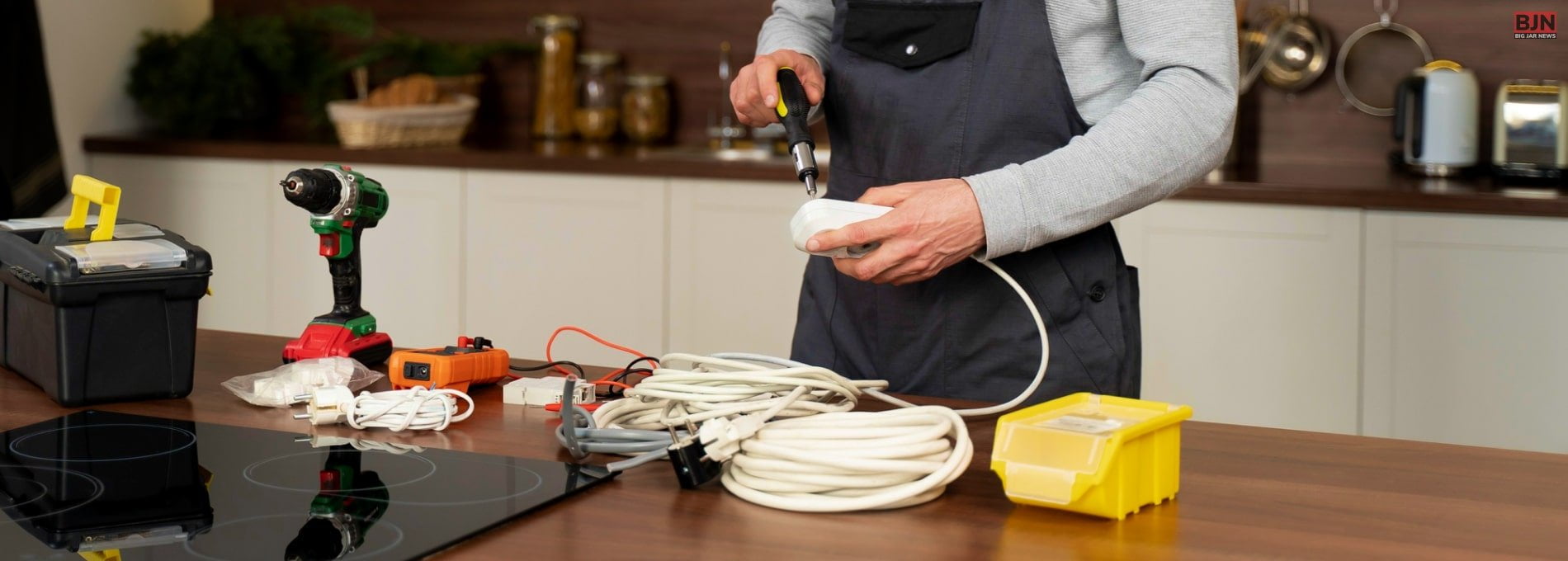
Table Of Contents
According to the Oxford Dictionary, a smart home is a “home equipped with lighting, heating, and electronic devices that can be controlled remotely by smartphone or computer.”
You can be an experienced smart home technician looking to expand your customer base or a newcomer to the real estate technology industry. But the world of property technology (prop-tech) is always presenting new and exciting opportunities. As the industry continuously adopts new technologies, you can become a certified smart home installer. Learn the trade to stay ahead of the game and grow your business.
In today’s times, it’s important than ever to conduct thorough research and obtain a certification as a smart home installer. The prop-tech installer certification process provides professionals with the necessary training and tools to install specific products. In this article, we’ll discuss the top five things you need to know to obtain certification.
Why Should It Matter To You?

The smart home industry has grown significantly and is currently valued at $58 billion in 2020. This growth is not just a passing trend, as 46% of homeowners prefer to have smart technology installed in their homes. Smart homes offer homeowners more convenience and increase a home’s attractiveness to potential buyers.
As a field service professional, you provide excellent service that meets customers’ needs. With more millennials becoming homeowners and embracing technology, there is an increasing demand for smart home services. Instead of rejecting requests for smart home installations, you can consider gaining expertise in this area. This article will explore the mechanics of smart homes, and how field service technicians can transition to smart technology. This way you can start servicing smart homes. yourself.
What To Expect
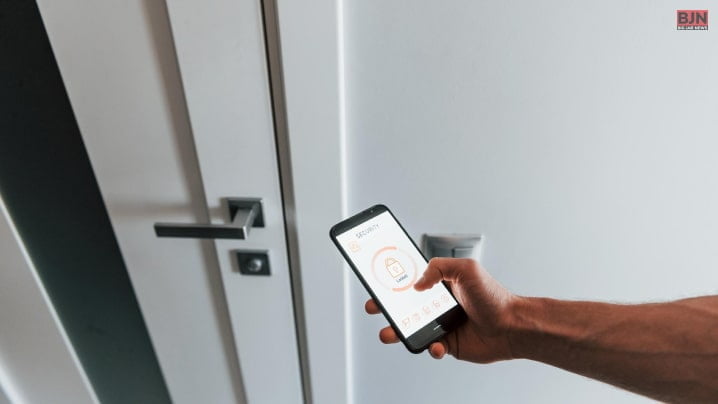
If you are responsible for installing security or burglar alarms, you may also be asked to install smart locks and Wi-Fi-enabled Ring cameras for homeowners. Similarly, as an HVAC technician, you will have to install Nest thermostats from time to time. As for electricians or appliance repair professionals, they may have to deal with smart appliances and their wiring.
If you run an IT or computer help business, you may receive calls from customers for assistance with their home’s smartphone apps. Lawn and irrigation professionals may come across more requests for smart sprinkler technology. For pool technicians, it’s important to have an understanding of pool automation software. They also need to know about fun add-ons like smart home-enabled lights, music, pool covers, and more.
Understanding Trending Prop-Tech Devices
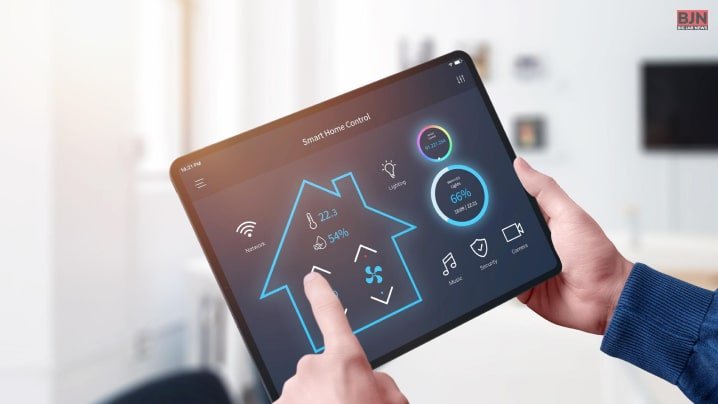
Although keeping up with the constant release of new prop-tech devices may seem overwhelming, it’s the first step to becoming a certified smart home installer. Most proptech devices have similar wiring and installation structures at their core, so if you’re an installer or integration specialist, you probably have the fundamentals already.
However, it’s important to stay up-to-date on the latest prop-tech solutions to show clients that your business is current and relevant. You can subscribe to top real estate magazines and periodicals to stay informed. You’ll be seen as an expert in the field when you stay on top of prop-tech trends. It will make your clients trust your smart building technology recommendations.
Some of the most popular prop-tech devices in the market are:
- Energy management platforms
- Cloud-based access control systems
- Package management solutions
Energy Management Platforms
The real estate industry has been working towards addressing the climate emergency in recent times. The concept of smart buildings was introduced as a means to enhance a building’s energy efficiency, and minimize its carbon footprint.
Platforms and devices for energy management are:
- Light sensors
- Innovative ventilation
- Solar-powered panels
Cloud-Based Access Control Systems
Cloud-based access control systems are becoming increasingly popular among both property managers and tenants due to their convenience. It has a simplified entry solution, remote property management capabilities, and various other integrations.
These systems are preferred over traditional keys and locks as they provide enhanced safety and security. It makes tenants feel more secure at their workplace or home. Cloud-based systems are particularly advantageous as they update themselves automatically and seamlessly integrate with mobile devices, such as tenants’ smartphones.
Package Management Solutions
With the rise and rise of online shopping, it has become increasingly important for property managers to seek effective and practical ways to deal with excessive deliveries. They are looking for solutions that will help them streamline their courier drop-off to tenant pick-up processes. This could take a huge load off their burden.
There are numerous automation technologies that help package rooms and lockers manage delivery and retrieval without manual intervention.
Build On Existing Skills
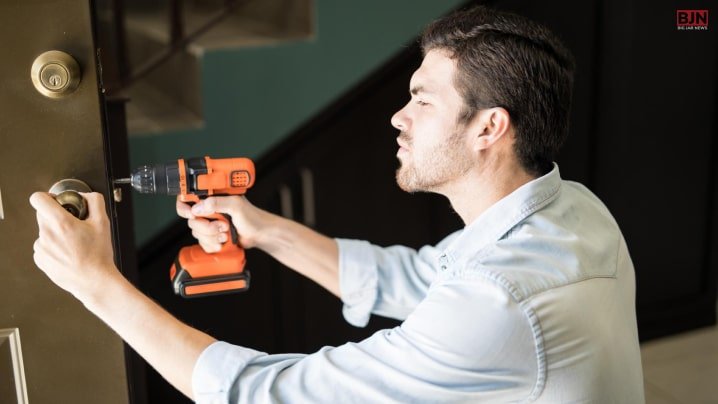
Firstly, it’s important to not be intimidated when venturing into new things or feeling like you have to know everything right away. Smart homes are still a relatively new concept for most people. There are only a few companies that have all the necessary skills to dive into this market. Creating a smart home requires a diverse set of skills, with each element contributing equally to a feature-rich, holistic smart home.
Most companies that are venturing into smart home installation come from one of these areas and are expanding their expertise to offer smart home solutions that encompass several of these elements. However, this doesn’t mean that a company that specializes in burglar alarms will suddenly start installing plumbing for heating systems as part of their smart home offerings.
Instead, think of the smart home solution as a layer that sits on top of other different areas. For example, let the plumber do the pipework and commission the heating system. You can only take control of the system once the plumbing is done. As an electrician or electrical contractor, you have a strong foundation in many areas. This puts you in an ideal position to expand your skills and offer more aspects of a smart home.
You don’t need to know everything at once or be an expert in all the areas of smart home automation.
Find And Pursue Relevant Online Coursework
Fortunately, the internet is a vast resource that provides access to knowledgeable instructors. For instance, organizations such as the Custom Electronic Design & Installation Association offer numerous virtual and face-to-face educational opportunities. They enhance your skills in smart home installation and improve your business-related knowledge. It can guide you on how to create accurate project timelines and cost proposals. In addition, many local community colleges offer programs for aspiring smart home installers and technicians.
To gain hands-on experience, it is recommended to purchase a set of starter devices and practice setting them up for testing at home. For those on a budget, popular e-learning platforms like Udemy and Teachable offer affordable online instruction to guide you through the initial stages. If you come across a problem, YouTube is an excellent resource for explaining key concepts. Additionally, many smart device manufacturers provide helpful how-to videos, instructional guides, and spec sheets that can be beneficial.
Get Certified As A Smart Home Installer
Once you are able to get the basics in place, you need to set your eyes on certification. A proper certification helps you partner with certain prop-tech manufacturers that can expand your existing customer base.
Some installer certification programs that you can try:
- Custom Electronics Design and Installation Association (CEDIA)
- Schneider Electric
- Electronic Security Association (ESA)
- Edison Electric Institution (EEI)
- ETA International
Additionally, almost all manufacturers offer educational videos, resources, and curated cut sheets that help you learn the trade at a professional level. Some of them also have their own certification programs to help integrators and installers have a sound knowledge of what they are dealing with.
Acquire The Tools For Installation
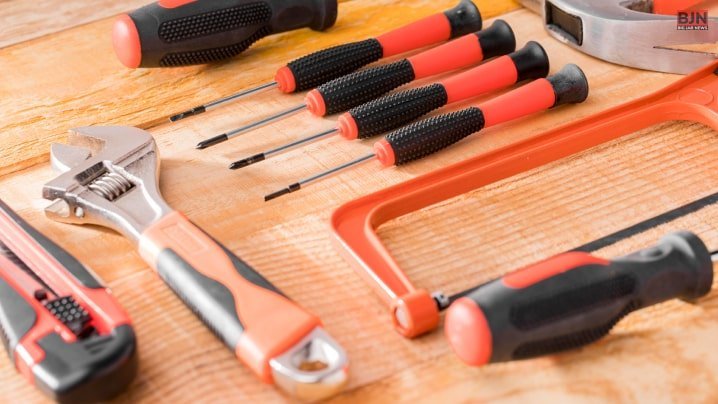
Ensure that you have all the essential tools required for installing a prop-tech device before heading out to a field job. Even though manufacturers usually provide the necessary cables and screws, you may need to have the rest of the tools yourself. Therefore, it is recommended that you invest in a sturdy toolbox equipped with basic tools/gadgets built to last.
Some of the most basic tools your toolbox must contain are:
- Screws
- Drill
- Wire Strippers
- Screws
- Needle nose pliers
- Wall anchors
- Level
- Wire nuts
Learn Basic Wiring Foundations
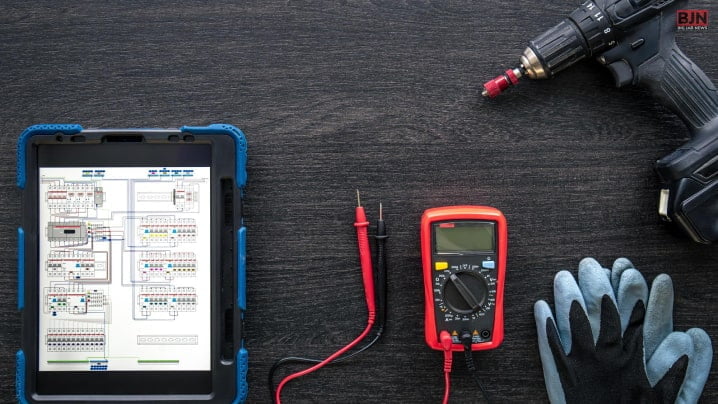
Being a skilled electrician, it is crucial to have a comprehensive understanding of wiring. The kind and caliber of wiring utilized can significantly impact the functionality of prop-tech devices. You wouldn’t want your clients to encounter device malfunction due to the usage of substandard wiring.
To install most prop-tech devices, it is important to have knowledge of different types of wires. Low voltage cables are commonly used, which are twisted pair cables available in various sizes including 18/2, 18/6, 22/4, and 24/2 gauges. The thickness of the cable determines the length of the cable run and the amount of amperage that can be drawn. The second number indicates the number of wires in the shielded cable.
Category 5 or 6 (cat5, cat6) Ethernet cables are also crucial for network connection between prop-tech devices and the internet. Cat6 cables offer greater bandwidth at shorter cable lengths compared to cat5 cables. Additionally, different prop-tech devices may require different power supplies. 12-volt DC power supplies, however, are commonly used for devices like access control systems and smart lights.
Complete A Job Successfully
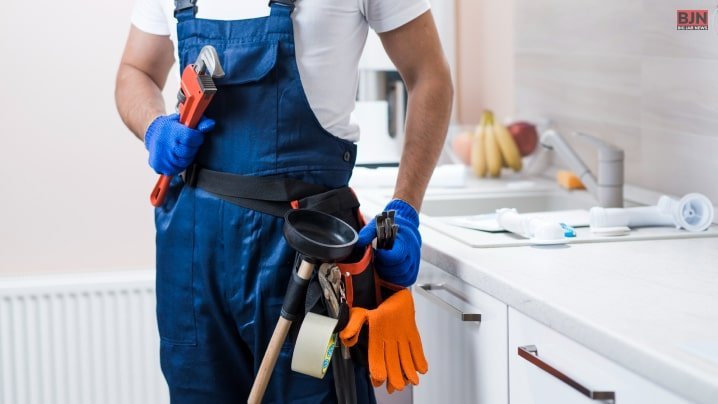
If you’re already operating in the field service industry and are experienced with mobile field service management as a whole, you can start incorporating your newly acquired skills into your service offerings. For example, if you’re an electrician or electrical contractor, you can provide your clients with smart lighting wiring services. Or you can add Nest thermostat installation to your range of HVAC services.
On the other hand, if you’re just starting out, you can look for short-term gigs on platforms such as Houzz or explore opportunities. You can consider some established companies on sites like Indeed. Having a portfolio full of five-star reviews is an excellent way to attract potential customers. In fact, research shows that 8 out of 10 people trust online testimonials as much as personal recommendations.
Therefore, it’s crucial to encourage satisfied customers to leave positive feedback on platforms such as Facebook, Houzz, or Yelp. This positive feedback can help grow your reputation and attract new customers. As you gain more experience in home installation, you’ll have access to more significant as well as extensive opportunities.
Many manufacturers, such as Nest, maintain a database of experienced installers that homeowners can consult when seeking assistance. You can submit your resume to these platforms to be listed as a top-recommended local expert.
Understand Troubleshooting For Smart Homes
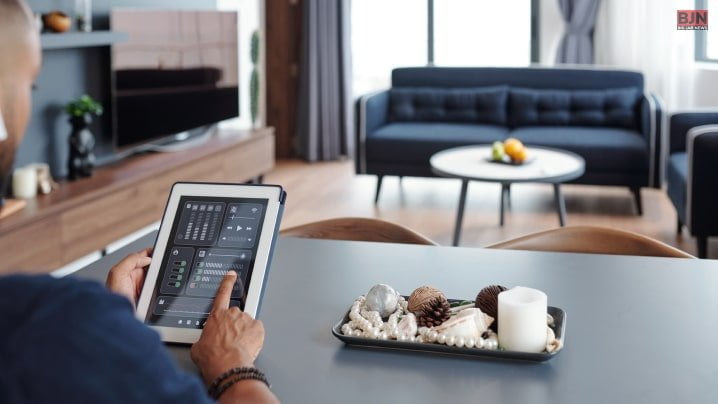
As a smart home installer, it’s not enough to just install the prop-tech devices. Your responsibility also includes ensuring that they function properly. After each installation such as solar panel installation, you must spend sufficient time testing the device, checking for any issues or system failures. To do this effectively, it’s essential to read the troubleshooting guide thoroughly. You can make yourself familiar with how to fix common problems for every device you install.
As an installer, it’s important to become an expert on the devices you’re installing. You don’t want to be caught off guard when clients ask about simple projects during the project walkthrough. Most manufacturing companies provide user manuals for their products. It is essential to go through them in detail.
It’s not just about understanding the installation process. You should be familiar with how the user interface on the product works. This way you can provide expert advice to clients and answer their questions.
Amp Up Your Business
Once you have a smooth-running business, a team of professionals, and multiple vehicles, it’s recommended to invest in GPS tracking to improve customer satisfaction.
GPS tracking allows you to monitor all your vehicles in real-time to know the whereabouts of every technician. Moreover, GPS tracking devices like Force by Mojio enable customers to track their technician’s location, so they know how far their technician is. In case of a dispute, you can check the tracking logs to understand what happened, eliminating guesswork.
Wrapping Up
Once your smart home installer services are running smoothly, hire a team of professionals if you want to consider expanding your services and client base. It’s important to stay updated with the industry’s latest trends and technologies to offer your clients the best possible service.
If you have thoughts to share or questions to ask, please leave a comment below. We would love to hear from you!
Learn More About:
What Is Hey Google Lumos? Things You Should Know
Should You Buy Raven Gadgets? Things You Should Know in 2023
What Is TF (TransFlash) Card And How Is It Different From SD Card?
Tags:
You May Also Like
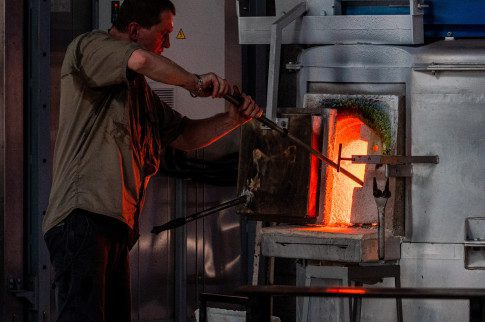
October 10, 2022
























